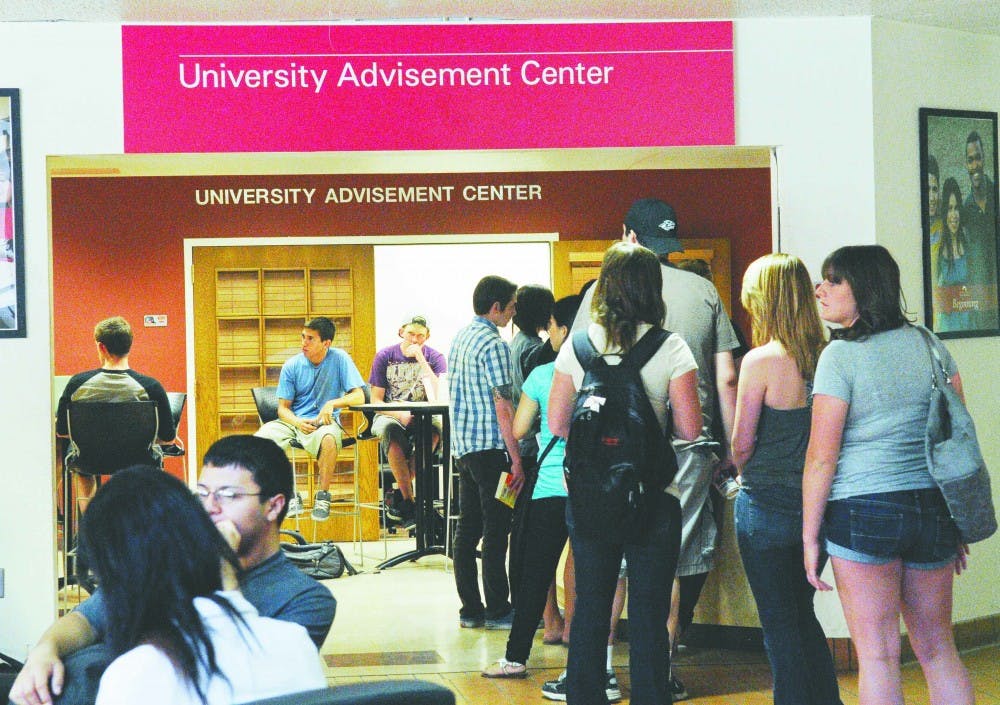avicraluckey@gmail.com
One of the top 10 reasons students do not return to UNM is inadequate academic advising, according to the Division of Enrollment Management.
Last semester, officials from National Academic Advising Association (NACADA) visited UNM to assess its advisement practices. In NACADA’s Academic Advising Program Review Report, officials said advisement problems at the University include high adviser-to-student ratios, confusing registration holds and processes to clear them, and shallow consultations between advisers and students.
Director of University Advisement Vanessa Harris said the University recognized the need for change in advisement protocol in order to improve services to students.
“The provost’s office and the president’s office agreed that it was time for us to bring in some consultants to look at UNM from the outside and provide us with some feedback and I think they did an excellent job,” she said.
Issues with the system:
Adviser overload
According to the report, advisement appointments are too short to provide adequate advisement. Officials said in the report that the short appointments lead to a poor perception of advisers.
“The role of advisers is perceived by the students we interviewed as one that focuses on clearing holds so they can register for courses and does not provide opportunities for developmental conversations or extended conversations about degree plans…” officials said in the report.
Harris said the University will hire four new advisers within the next year to improve the student-to-adviser ratio. She said one of the advisers will be added to the University Advising Center and the other three will be advisers in the College of Arts and Sciences.
Harris said the other advisers focus on advising transfer students.
But Harris said the high student-to-adviser ratio is affected by inadequate faculty pay. She said the University has a high adviser turnover rate, which was included in the NACADA report.
“Because of the high adviser-to-student ratio you can get burned out a lot, because you have so many students you’re interacting with and you want to be able to give them your best, but sometimes you cant’s simply because of the numbers,” she said.
Get content from The Daily Lobo delivered to your inbox
Communication among advising units
According to the report, communication between advising departments was unclear and frustrated students, and NACADA officials recommended that a newsletter be sent out for advisers and that other University officials improve communication between departments.
Harris said the University has already made improvements on this issue, but has yet to decide if the newsletter will be sent out once per month or twice per semester.
“The goal is to have them out by the end of the summer, or at least by the beginning of the fall semester,” she said. “We should hopefully kick off into the fall semester saying ‘here’s your advising newsletter.’”
According to the report, UNM lacks a defined hierarchy within the advisement department. The report stated that Harris’ position is new and there is no clear role for it, which causes confusion about what issues should be brought to her attention.
Harris said the administration will work with faculty members to ensure that everyone understands their responsibilities.
LOBO Trax
According to the report, NACADA officials recommended an eight-semester course plan for each student in order to decrease confusion students may have about courses they need.
Harris said the University provides LOBO Trax, a degree auditing program so students can keep track of which classes they need to complete their degrees. She said UNM will focus on getting students to make better use of the tool.
“What we find is that when we give more students more paper, they tend not to use LOBO Trax and we really want to encourage students to use that because it helps us,” she said.






